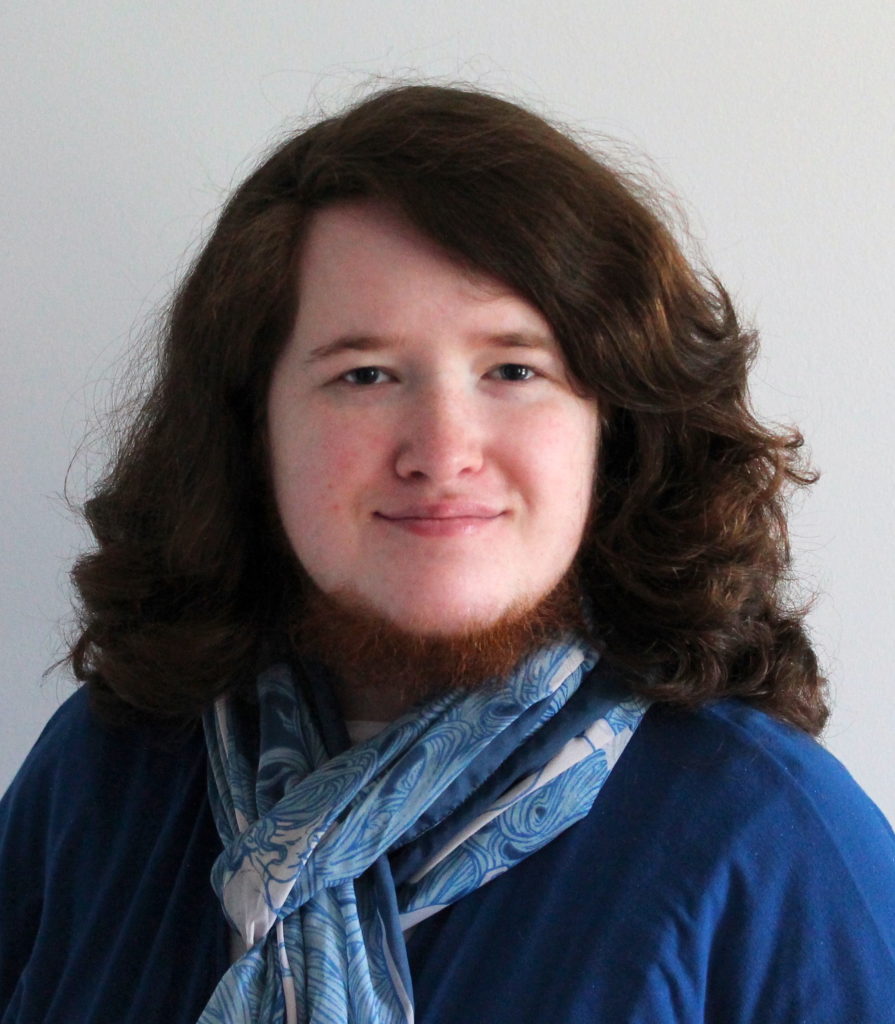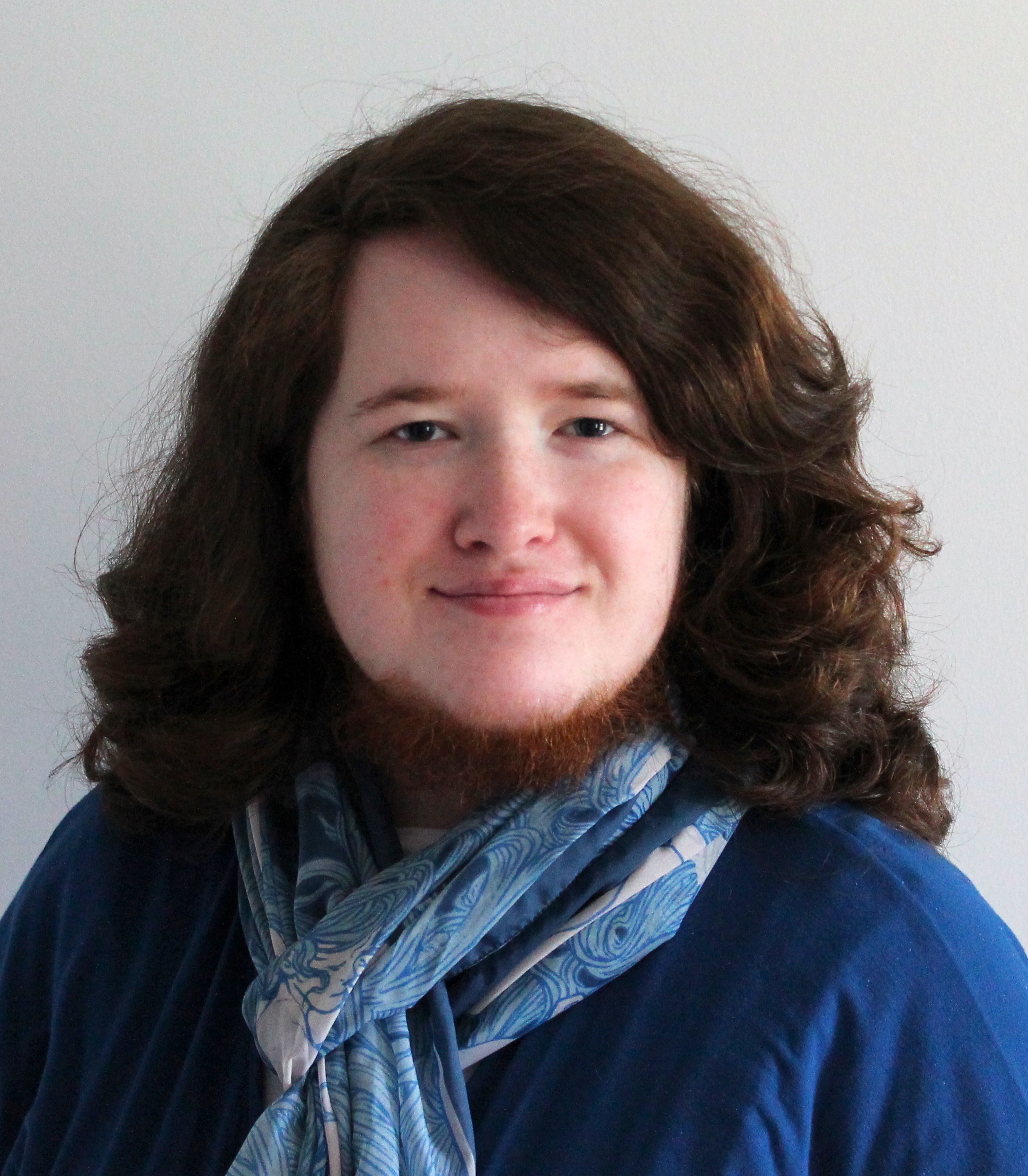Why do you write?
As a teenager, I adored the rush of coming up with a concept; as I’ve aged, however, writing has become a place of solace. A place where I can explore concepts and emotions without fear. It wasn’t until I began work on a novel with a transgender protagonist that I allowed myself to consider my own relationship to gender. I write because it provides me with introspection into my life and others, and as I’ve developed as an author, I’ve only fallen more in love with the writing process, from initial concept to revision to finalized piece.
Is there an author who has most profoundly influenced your work?
I’ve always had what I like to refer to as touchstone authors, authors I will revisit when I want to be reminded of what I would like my work to look like. As of late, those authors have been Madeline Miller and Octavia E. Butler.
Why did you choose Stonecoast?
Getting a degree in writing became inevitable long ago. I applied to several graduate programs but ended up choosing Stonecoast because it appealed most to me with its focus on craft and community.
What is your favorite Stonecoast memory?
My first residency was at the Harraseeket Inn in the winter of last year, and two memories from that residency come to mind when considering this question. The first being my meet and greet with my cohort—all of us introducing ourselves through a series of ice breaker questions and talking about what led us to the program. The second memory being the readings in the evenings, leaving my hotel room, and walking through the halls knowing I would hear some genuinely astounding writing each night and knowing I would have friends to sit with while I listened.
What do you hope to accomplish in the future?
I’m currently working on a novella that retells the Greek myth of Daedalus and Icarus, in which Icarus survives the fall—an excerpt of this is featured below. I’m also working on several short stories that focus on a variety of LGBT+ relationships and identities. Ideally, I would like to publish all of this in the next few years.
I’ve tried to put words to how I’ve developed as an author in the past, and the best description I’ve come up with is that I can feel myself waking up as an author. I’m becoming more aware of the intricacies of craft in a way I wasn’t before. I’m striving to better my writing in every way I can, and I intend to apply this throughout my work in the future.
If you could have written one book, story, or poem that already exists, what would you choose?
This is such an interesting question. I feel, however, that any creative work is irrevocably tied to the creator, and I don’t wish to sever that connection by claiming something as my own. That being said, I’d love to create something akin to the quality of Circe by Madeline Miller or something with half as much heart as The Adventure Zone: Balance from the McElroy family.
Featured Work
The following is an excerpt from a novella that retells the Greek myth of Daedalus and Icarus in which Icarus survives the fall. This passage portrays Daedalus confronting the gods after Icarus nearly dies during their escape from Crete:
“Who seeks to harm my son?”
Asking this is perfunctory, so that Daedalus may assure himself that he has done it and set himself to methods of asking that might yield more direct results. He does not expect an answer. Every day mortals ask questions of the gods and receive nothing but silence in response. Yet the sea ahead of him churns as though caught in a storm. Waves rise and break against the shore and a figure rises from the water and heads for him.
“He will be remembered in the minds of mortals for millennia,” Poseidon says as he nears. His voice does not come from his throat, but from the sounds around him. The shriek of gulls above. The hiss of the waves receding behind him, the slap of them meeting the shore again. All these sounds twist to give the god of the sea his voice. Daedalus had met Athena once. Decades ago. She had come to him in the form of a woman clad in brilliant armor and though the air around her had shimmered with light, her visage had been mortal. Human. He cannot say the same of the god now before him, not with what he can see by moonlight. Poseidon’s skin is slate gray, marked with barnacles, and his features shift as though his face is a reflection upon water.
“Who seeks to harm my son?” Daedalus asks again.
“That does not concern you.”
It takes him a moment to respond, such is the rage that fills him.
“It does not concern me?” His voice shakes and each word must be forced out through the tightness in his throat.
“No. The boy should not have survived the journey in the first place. There is still time to fix this. If he is dead before dawn, it will be as though none of this has happened. You may even give him a proper burial, which you would have been unable to had he perished at sea. You will be able to guarantee him passage to the underworld, where he may live on in the house of the dead.”
“You,” Daedalus manages, swallows, “you expect me to—kill, my son?”
Poseidon does not answer. He does not need to. As Daedalus’s silence stretches, Poseidon’s form shifts and swells and Daedalus’s eyes sting. Each time he blinks, he sees the silhouette of the god before him, seared into his vision. Poseidon’s divine essence, his truest self, has started to leak into this form in his agitation, like blood into water. It is that more than anything that confirms for Daedalus that he will not leave this beach alive if he refuses. He will die where he stands for daring to refuse and the sea will sweep up the beach and flood the cavern in which his son sleeps. Icarus will drown. He will be remembered in the minds of mortals for millennia, and is that not what all mortals long for? To be remembered? Who is he to deny Icarus that?
He is his father. He will not survive this if he refuses.
It would be a kinder death at his hands.
“I will do it,” he says.
“Good,” Poseidon intones. “I will return at dawn.” He draws back, then pauses. “You are wise to accept this offer. Few mortals will ever be known as well as him.”
Daedalus says nothing and Poseidon turns fully and returns to the sea, recedes back into the waves. Daedalus lingers for only a moment, then turns and heads back up the beach.
His own place in history’s memory was ensured long ago. Now Icarus’s will be as well. But the recollection of himself that will be remembered is not the one that walks upon this beach. He hesitates at the cave’s entrance. This rendition of himself, this moment and the one that is to come, will be entirely forgotten.
“Icarus,” he says, savoring the sound of his son’s name spoken aloud for perhaps the last time, “my son, wake.”
Icarus sleeps on his back, as he has since he was a child, his injured arm cradled against his chest. Daedalus kneels beside him and lays a hand on his uninjured shoulder and shakes him gently. His son jerks back against the touch and shakes his head, blinks and gazes up at him, his eyes clouded with sleep and latent pain.
“Father?” Icarus croaks, swallows. “What is it?”
Poseidon had thought he would take no issue with the slaughter of his own son but then the gods have thought the worst of mortals for countless millennia. They would think this a fitting punishment, given how he had managed to deny the fates by catching Icarus in the first place. Poseidon would believe him if he said that he would do it, because he could not imagine a world in which a mortal would dare lie to a god. Poseidon would believe him even as he lied.

Elliot Brillant is an author and illustrator who received their BFA in Illustration and Creative Writing from the Massachusetts College of Art and Design. They are currently completing their MFA in Literary Fiction through Stonecoast and are a first reader for the Stonecoast Review. They are also an ambassador at The Telling Room, located in Portland, Maine, and an editor for an upcoming anthology. Their work prioritizes LGBT+ relationships and identities, filtered through the lens of their experience as a non-binary person.
